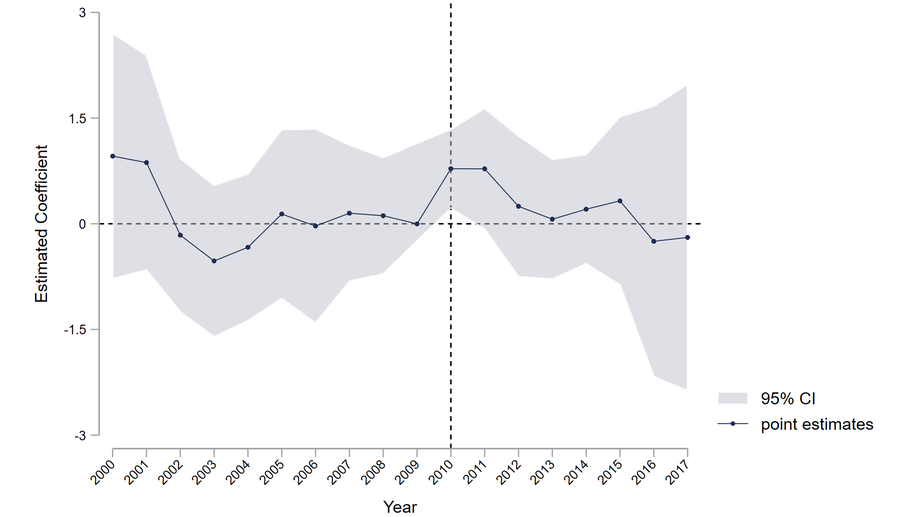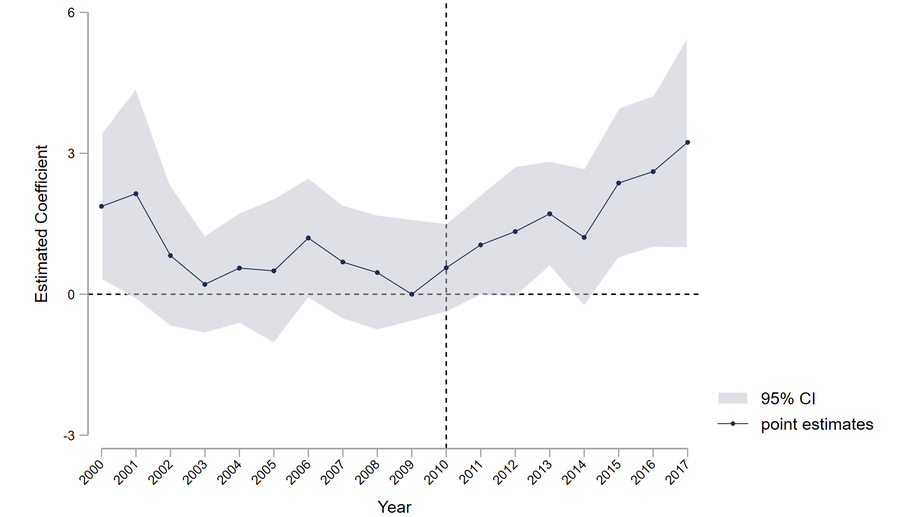In recent years, the United States has been gradually adopting a harm reduction approach to its drug control policies, reducing penalties associated with the possession of drugs. The Safe Neighborhoods and Schools Act, known as California’s Proposition 47, is an example. Passed by California voters in November 2014 and became effective immediately since, it reclassified simple possession (possession with no intent to distribute) of “hard drugs,” such as methamphetamine, from a wobbler offense (a crime that can be punished as either a misdemeanor or a felony) to a misdemeanor. In this paper, I study whether this legislative change affects the prevalence of common sexually transmitted diseases (STDs). The primary data source for measures of STDs is the National Center For HIV/AIDS, Viral Hepatitis, STD, and TB Prevention (NCHHSTP) Atlas-Plus, from which I obtained county-level prevalence data for chlamydia, gonorrhea, and primary and secondary syphilis. Exploring the timing of the implementation of this policy and using counties of neighboring states (Arizona, Nevada, Oregon) as the control group, difference-in-difference regression estimates show that there is little evidence that suggests Proposition 47 increased the prevalence of these conditions. On the other hand, event study estimates show that there is a temporary increase in the prevalence of chlamydia after 2014.

